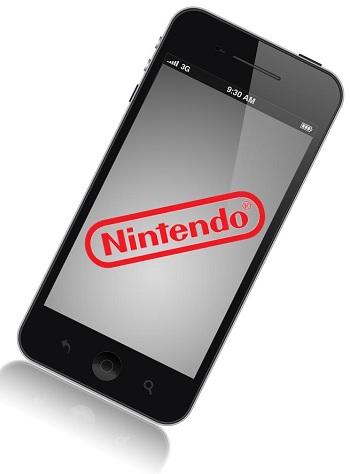The company has filed a patent that suggests that an official smartphone Game Boy emulator could be on the way.
Nintendo has filed a patent that has now been published which could suggest that the company is looking to greatly enhance its position in mobile gaming by bringing some of its Game Boy titles to smartphones and tablets by way of emulation tech.
The idea of emulators isn’t anything new, but this move by Nintendo is something new on official channels.
This type of mobile gaming emulator is something that can help to make it possible for all of the Game Boy favorites to become playable on smartphones and tablets. There are a number of emulators that already exist online that function by mimicking old types of game consoles to allow gamers to be able to play all of their old beloved games that have been converted into ROM files for PCs and Macs. Nintendo may now be doing the same thing and it could be possible for it to accomplish this goal without having to do a massive amount of rewriting to get there.
Emulators for mobile gaming on a low capability target platform duplicate the experience of a handheld video game device.
 This would use a number of different optimizations and features to be able to take the old games and boost the graphics quality and sound so that the mobile game version will be a near duplication of what the game had been when played on its native platform. There have been a number of successful emulators and platforms online, but Nintendo would be able to provide an official and legal experience that has not been available for Game Boy games in the past.
This would use a number of different optimizations and features to be able to take the old games and boost the graphics quality and sound so that the mobile game version will be a near duplication of what the game had been when played on its native platform. There have been a number of successful emulators and platforms online, but Nintendo would be able to provide an official and legal experience that has not been available for Game Boy games in the past.
Among the examples of what is accomplished through emulators include using bit BLITing, the reformatting of graphics characters, and the modeling of the LCD of a native platform controller through the use of a sequential state machine, as well as skipping frame display updates selectively if it appears that the mobile gaming play is falling behind what would have occurred in the same experience on the native platform.
These consumers are also concerned about spam when it comes to the smartphone based marketing they receive.
Research conducted by On Device on behalf of MobPartner has now revealed some interesting insight with regards to the way that mobile ads are being used to reach travelers and what those consumers feel about this advertising.
The study was conducted earlier this year with the participation of 1,000 device using travelers.
The research looked into the way that travelers engaged in the planning and research of their trips on their laptops, smartphones, and tablets, particularly when it came to the receipt of online and mobile ads. What they determined was that nearly two out of every five respondents to the survey stated that they were reluctant to click on mobile marketing advertisements as they have concern that it could potentially be spam.
Among the respondents, 33 percent felt that the mobile ads that they received were not relevant to them.
 In fact, the vast majority of the respondents to this research were not among those that felt that mobile marketing was effective. Only 17 percent claimed that they felt that the mobile advertising that they received was effective. Another 52 percent were uncertain as to whether or not they felt that it was effective.
In fact, the vast majority of the respondents to this research were not among those that felt that mobile marketing was effective. Only 17 percent claimed that they felt that the mobile advertising that they received was effective. Another 52 percent were uncertain as to whether or not they felt that it was effective.
Among the most important factors in the creation of mobile advertising as a channel that travelers will take seriously is in the familiarity and comfort components with the brands themselves. The study determined that one in three smartphone users would be willing to click on a digital ad if they believe that it was created by a brand that they trust. Moreover one in four of those respondents said that they had then made a purchase from that brand after having clicked their ad.
When it came to mobile ads that used video instead of just static display content, the advertisements that were viewed over smartphones and tablets the most frequently were those that included video (33 percnet0. However, when travel brands featured apps or mobile games, they generated a recall value of 32 percent. Regardless, the largest common opinion that seems to continue in the minds of travelers with respect to mobile marketing as a whole appeared to be doubt.
 This would use a number of different optimizations and features to be able to take the old games and boost the graphics quality and sound so that the mobile game version will be a near duplication of what the game had been when played on its native platform. There have been a number of successful emulators and platforms online, but Nintendo would be able to provide an official and legal experience that has not been available for Game Boy games in the past.
This would use a number of different optimizations and features to be able to take the old games and boost the graphics quality and sound so that the mobile game version will be a near duplication of what the game had been when played on its native platform. There have been a number of successful emulators and platforms online, but Nintendo would be able to provide an official and legal experience that has not been available for Game Boy games in the past.
 In fact, the vast majority of the respondents to this research were not among those that felt that mobile marketing was effective. Only 17 percent claimed that they felt that the mobile advertising that they received was effective. Another 52 percent were uncertain as to whether or not they felt that it was effective.
In fact, the vast majority of the respondents to this research were not among those that felt that mobile marketing was effective. Only 17 percent claimed that they felt that the mobile advertising that they received was effective. Another 52 percent were uncertain as to whether or not they felt that it was effective.